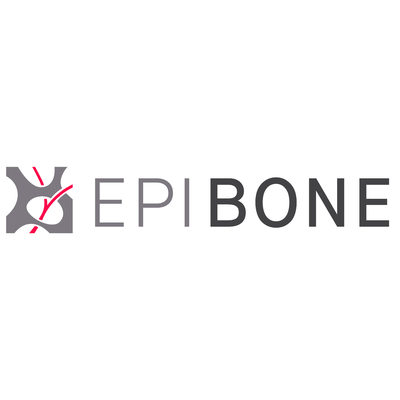EpiBone: Pioneering the Future of Skeletal Repair
November 11, 2024, 4:06 pm

Location: United States, New York
Employees: 11-50
Founded date: 2013
Total raised: $1M
EpiBone is on a mission. This New York City-based company is not just another name in the crowded field of regenerative medicine. It’s a beacon of hope for those suffering from skeletal injuries and diseases. Recently, EpiBone secured a significant funding round, led by Kendall Capital Partners, with support from LifeSpan Vision Ventures and EMV Capital. This financial boost is more than just numbers; it’s a lifeline for innovation.
The world of medicine is evolving. Traditional methods often fall short. EpiBone aims to change that narrative. Their approach is rooted in advanced technologies. They harness the power of autologous and allogeneic stem cells. These are the building blocks of life, and EpiBone uses them to create personalized solutions for bone and cartilage reconstruction. Imagine a tailor crafting a suit that fits perfectly. That’s what EpiBone does for the human body.
3D bioprinting is another tool in their arsenal. This technology allows for the creation of complex structures that mimic natural bone. It’s like sculpting with living materials. The precision of 3D printing means that each piece can be customized to fit the patient’s unique anatomy. This level of personalization is revolutionary. It moves away from the one-size-fits-all mentality that has plagued medicine for decades.
Bioreactor technology plays a crucial role as well. These devices create an environment where cells can thrive and grow. Think of it as a greenhouse for cells. By providing the right conditions, EpiBone can cultivate tissues that are ready for implantation. This process not only enhances the effectiveness of treatments but also reduces recovery times for patients.
The recent funding will accelerate EpiBone’s pipeline development. This means more products, more treatments, and ultimately, more lives changed. The company is developing a range of skeletal tissue products, targeting not just bones but also cartilage. The implications are vast. From sports injuries to degenerative diseases, EpiBone’s innovations could redefine how we approach skeletal repair.
EpiBone is not just focused on the U.S. market. They have their sights set on global expansion. Emerging markets like Thailand and the United Arab Emirates are on their radar. These regions are becoming hubs for medical tourism. Patients from around the world seek advanced treatments, and EpiBone aims to be at the forefront of this movement. By tapping into these markets, they can reach more patients in need of their groundbreaking therapies.
The leadership at EpiBone is equally impressive. Dr. Nina Tandon, the CEO and co-founder, is a visionary in the field. Her passion for transforming skeletal repair is palpable. Under her guidance, EpiBone is not just a company; it’s a movement. The support from strategic investors like Kendall Capital Partners and EMV Capital further solidifies their mission. These investors see the potential for EpiBone to disrupt the standard of care in musculoskeletal treatments.
The landscape of healthcare is shifting. Patients are becoming more informed and demanding better solutions. EpiBone’s innovative approach aligns perfectly with this trend. They are not just offering treatments; they are providing hope. Hope for those who have suffered injuries that once seemed insurmountable. Hope for patients who have been told that traditional methods are their only option.
The implications of EpiBone’s work extend beyond individual patients. They are contributing to a larger narrative in healthcare. Regenerative medicine is poised to change the way we think about healing. It challenges the status quo and pushes the boundaries of what is possible. EpiBone is at the forefront of this revolution.
As they continue to develop their technologies, the future looks bright. The potential for growth is immense. With each funding round, EpiBone moves closer to realizing its vision. A vision where skeletal injuries are treated with precision and care. A vision where patients can regain their quality of life through innovative therapies.
In conclusion, EpiBone is more than just a company. It’s a symbol of progress in regenerative medicine. With cutting-edge technologies and a commitment to patient care, they are redefining the landscape of skeletal repair. The recent funding is a testament to their potential. As they expand their reach and develop new products, the world will be watching. EpiBone is not just building bones; they are building a future where healing is personalized, effective, and accessible to all.
The world of medicine is evolving. Traditional methods often fall short. EpiBone aims to change that narrative. Their approach is rooted in advanced technologies. They harness the power of autologous and allogeneic stem cells. These are the building blocks of life, and EpiBone uses them to create personalized solutions for bone and cartilage reconstruction. Imagine a tailor crafting a suit that fits perfectly. That’s what EpiBone does for the human body.
3D bioprinting is another tool in their arsenal. This technology allows for the creation of complex structures that mimic natural bone. It’s like sculpting with living materials. The precision of 3D printing means that each piece can be customized to fit the patient’s unique anatomy. This level of personalization is revolutionary. It moves away from the one-size-fits-all mentality that has plagued medicine for decades.
Bioreactor technology plays a crucial role as well. These devices create an environment where cells can thrive and grow. Think of it as a greenhouse for cells. By providing the right conditions, EpiBone can cultivate tissues that are ready for implantation. This process not only enhances the effectiveness of treatments but also reduces recovery times for patients.
The recent funding will accelerate EpiBone’s pipeline development. This means more products, more treatments, and ultimately, more lives changed. The company is developing a range of skeletal tissue products, targeting not just bones but also cartilage. The implications are vast. From sports injuries to degenerative diseases, EpiBone’s innovations could redefine how we approach skeletal repair.
EpiBone is not just focused on the U.S. market. They have their sights set on global expansion. Emerging markets like Thailand and the United Arab Emirates are on their radar. These regions are becoming hubs for medical tourism. Patients from around the world seek advanced treatments, and EpiBone aims to be at the forefront of this movement. By tapping into these markets, they can reach more patients in need of their groundbreaking therapies.
The leadership at EpiBone is equally impressive. Dr. Nina Tandon, the CEO and co-founder, is a visionary in the field. Her passion for transforming skeletal repair is palpable. Under her guidance, EpiBone is not just a company; it’s a movement. The support from strategic investors like Kendall Capital Partners and EMV Capital further solidifies their mission. These investors see the potential for EpiBone to disrupt the standard of care in musculoskeletal treatments.
The landscape of healthcare is shifting. Patients are becoming more informed and demanding better solutions. EpiBone’s innovative approach aligns perfectly with this trend. They are not just offering treatments; they are providing hope. Hope for those who have suffered injuries that once seemed insurmountable. Hope for patients who have been told that traditional methods are their only option.
The implications of EpiBone’s work extend beyond individual patients. They are contributing to a larger narrative in healthcare. Regenerative medicine is poised to change the way we think about healing. It challenges the status quo and pushes the boundaries of what is possible. EpiBone is at the forefront of this revolution.
As they continue to develop their technologies, the future looks bright. The potential for growth is immense. With each funding round, EpiBone moves closer to realizing its vision. A vision where skeletal injuries are treated with precision and care. A vision where patients can regain their quality of life through innovative therapies.
In conclusion, EpiBone is more than just a company. It’s a symbol of progress in regenerative medicine. With cutting-edge technologies and a commitment to patient care, they are redefining the landscape of skeletal repair. The recent funding is a testament to their potential. As they expand their reach and develop new products, the world will be watching. EpiBone is not just building bones; they are building a future where healing is personalized, effective, and accessible to all.
